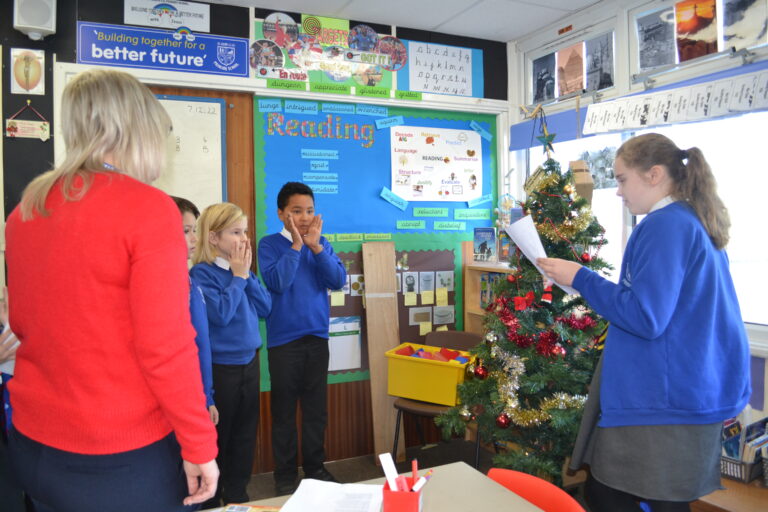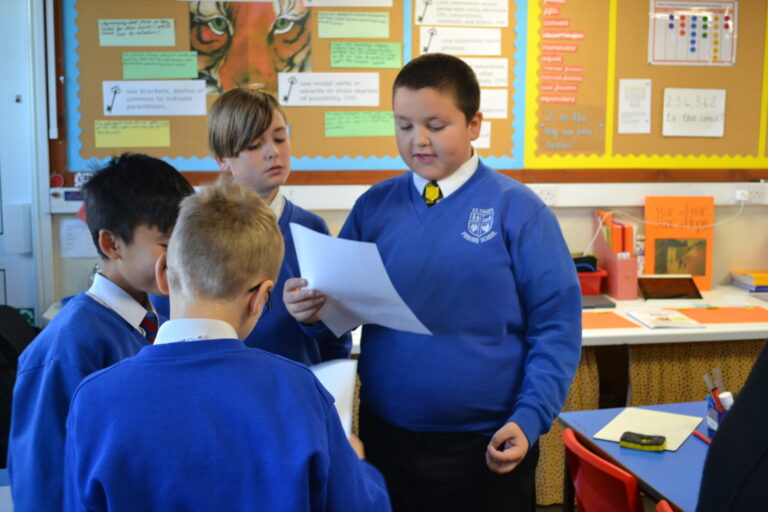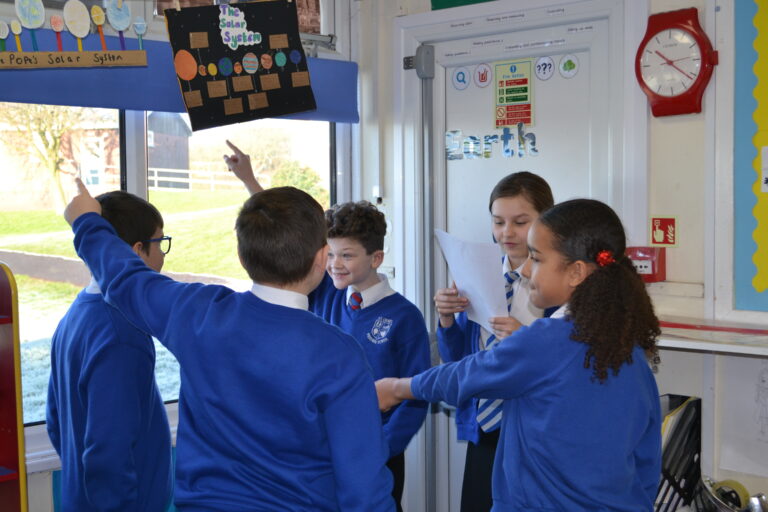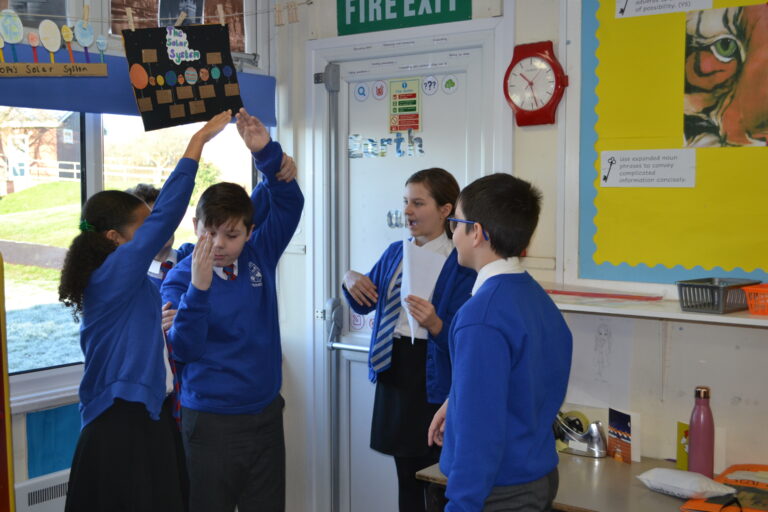Speaking & Listening
At St Chad’s C.E. Primary School, we recognise that speaking and listening allows pupils to develop culturally, emotionally, intellectually, socially and spiritually. Speaking and listening activities enable pupils to acquire knowledge and build on what they already know. Giving our children the skill of language is essential for them to participate fully in society. We aim to promote high standards of language and literacy by equipping pupils with a strong understanding of the spoken word and to develop a love of communication through speaking and listening for a range of purposes for enjoyment.
Our speaking and listening curriculum begins from the moment our youngest children enter our school setting. Children in Early Years under go the ‘Stoke Speaks Out’ assessment in the first few weeks of school, and those requiring the intervention take part in this straight away. We work closely with our Speech and Language Therapists and aim to make referrals as early as possible to ensure our children are equipped with the tools they need to communicate. The Early Years is full of speaking and listening opportunities, a great deal of time is given to the adult to be ‘interactors’ with our children to ensure speaking is modelled during play and to dedicate time for holding a conversation with individuals, so there is time to ask and answer questions.
As a school we strive to maximise creative aspects of the curriculum and provide all pupils with speaking and listening opportunities through drama, role play, school trips, visits and visitors, class assemblies, school productions and stimulating, innovative classroom teaching. We ensure that speaking and listening opportunities are central to our curriculum and plan opportunities for this in all subjects. To guide us with our expectations of speaking and listening we refer to the ‘Communicating the Curriculum’ document for children in KS1 and KS2.
Children leave St Chad’s having had access to a wide and varied range of high-quality speaking and listening experiences, which helps them communicate effectively as they continue the learning journey. They leave us as confident speakers who can share their own thoughts and feelings in a diplomatic, respectful way.
Gallery










